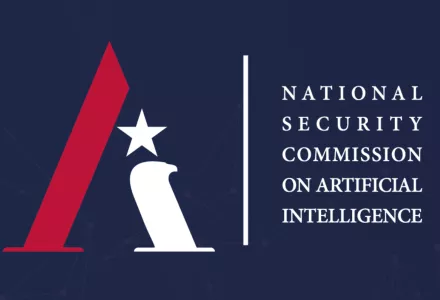Yll Bajraktari
Yll Bajraktari serves as the Executive Director of the National Security Commission on Artificial Intelligence (NSCAI). Prior to joining NSCAI, Mr. Bajraktari was a Distinguished Visiting Research Fellow at the National Defense University’s Institute for National Strategic Studies on temporary assignment from the Office of the Secretary of Defense. While at NDU, Mr. Bajraktari planned and executed the first Artificial Intelligence seminar for rising military and civilian leaders. Mr. Bajraktari has worked for nearly a decade at the highest levels of U.S. national security advancing America’s security and interests. Prior to joining NDU, Mr. Bajraktari worked as the Chief of Staff to the National Security Advisor, LTG H.R. McMaster. In that capacity, Mr. Bajraktari led and directed action across the National Security Council, to best support and prepare the National Security Advisor to provide advice, options, and recommendations to the President. Prior to working at the White House, Mr. Bajraktari served for three years in a variety of leadership roles for the Deputy Secretary of Defense Robert O. Work. In that role, Mr. Bajraktari was instrumental in planning and executing the Third Offset Strategy, the Department of Defense’s signature strategic effort to strengthen the military’s advantage against future threats. Mr. Bajraktari also served as the Special Assistant to the Chairman of the Joint Chiefs of Staff GEN Martin Dempsey where he provided policy input to prepare the Chairman for his role as principal military advisor to the President, the Secretary of Defense, and the National Security Council. Mr. Bajraktari served as the Country Director for India, where he successfully developed and executed major defense policy efforts to improve and deepen U.S. cooperation on military technology with India. Mr. Bajraktari began his career with the Department of Defense as a country director for Afghanistan, where he engaged key allies and partners in bilateral and multilateral forums to increase their troop contributions for the security mission in Afghanistan. Prior to entering government, Mr. Bajraktari worked on conflict and post-conflict issues at the prestigious U.S. Institute of Peace and Institute for Defense Analysis. Born and raised in Kosovo, Mr. Bajraktari holds a B.A. degree in International Relations from the George Washington University and a M.A. in Public Policy from Harvard University.
Rama Elluru
Rama Elluru is currently an Administrative Patent Judge on the Patent Trial and Appeal Board at the United States Patent and Trademark Office. She has been detailed to the NSCAI since September 2019 where she works on Ethics and Responsible AI as well Intellectual Property. Before joining the Board, Rama practiced IP law for 20 years, particularly in analyzing and litigating E.E. and bio-pharma patents. She graduated from Trinity University with a B.S. in Computer Science and obtained a J.D. from the Washington and Lee School of Law. After law school, she received a M.S. in Biochemistry/Molecular Biology from Georgetown University.
Paul Lekas
Paul Lekas is Director of Research and Analysis and Senior Legal and Strategy Advisor for the National Security Commission on Artificial Intelligence, where he leads the Commission's efforts around global cooperation and foreign policy and advises on legal aspects of national security and technology policy. Paul previously served as as Deputy General Counsel (Legal Counsel) for the U.S. Department of Defense and as General Counsel and Chief Legal Officer for the National Commission on Military, National, and Public Service. Before entering government service, Paul practiced law for over a decade in New York and Washington, DC, with a focus on litigation, white collar defense, government investigations, and crisis management. Paul received his AB from Harvard College and his JD from Harvard Law School.
Christie Lawrence
Christie Lawrence is a Director for Research and Analysis focused on international AI cooperation and intellectual property. Prior, she worked at Harvard Belfer Center’s Cyber Project where she co-authored The Case for Increased Transatlantic Cooperation on Artificial Intelligence. She also previously worked as a management consultant and at the Department of State. She is a concurrent MPP/JD candidate at Harvard Kennedy School and Stanford Law School.

